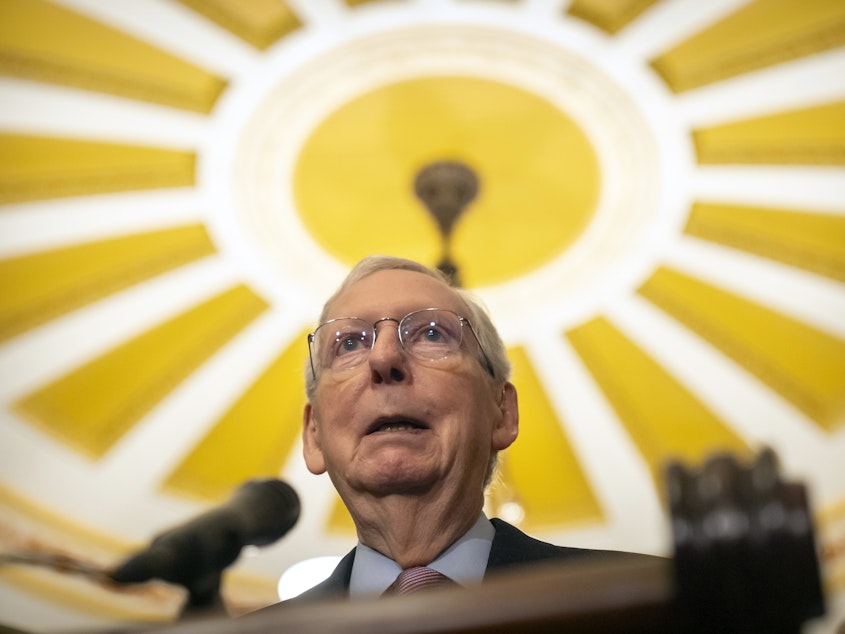Mitch McConnell will step down as Senate minority leader in November

Senate Minority Leader Mitch McConnell will step down as Republican leader in November.
McConnell, R-Ky., announced his plans in an emotional speech on the Senate floor shortly after aides confirmed his plans to reporters.
"This will be my last term as Republican leader of the Senate," McConnell said, his voice cracking. "I'm not going anywhere anytime soon, however. I will complete the job my colleagues have given me until we select a new Leader in November and they take the helm next January."
He talked about waiting for a day when he would have total clarity about the end of his work.
"That day arrived today," McConnell said.
Sponsored
McConnell said he intends to serve out the rest of his Senate term, which ends in 2027.
"I still have enough gas in the tank to thoroughly disappoint my critics and I intend to do so with all the enthusiasm which they have become accustomed," he joked.
The Kentucky Republican, 82, had faced questions about his health for several months. Most recently, he abruptly froze and seemed unable to speak during two press conferences in July and August. In March, he fell during a dinner event at a D.C. hotel, and spent five days in the hospital. His office said he received treatment for a concussion, and spent about a week in inpatient rehab to also address a "minor rib fracture."
McConnell's legacy
During his tenure as the longest-serving Senate GOP leader, McConnell has helped to reshape the federal judiciary and the chamber itself. He is a frequent antagonist to Democratic presidents.
Sponsored
First elected to the Senate in 1984, McConnell was soon driven by a singular political ambition to become majority leader. A cunning tactician, he worked his way up the ladder, serving as Senate campaign chair and party whip before being elected minority leader in 2007. McConnell became majority leader after Republicans won control of the Senate in 2014, 30 years after he was first elected to the chamber.
McConnell entered politics toward the liberal side of the Republican Party, supporting abortion rights and union labor, but his politics shifted right under former President Ronald Reagan — eventually landing him squarely as a hero of the conservative cause.
Nowhere was that more evident than the federal bench. McConnell led the successful effort to keep Supreme Court Justice Antonin Scalia's seat vacant after his sudden death in January 2016, denying President Obama's appointee Merrick Garland a single hearing. That decision helped Donald Trump secure the White House, propelling white evangelicals to show up for him in higher numbers after he had publicly pledged to fill the seat with a conservative. Trump went on to fill that seat with Justice Neil Gorsuch and appointed two more Supreme Court justices during his four years in office. McConnell told The New York Times in 2019 that the Garland decision was "the single most consequential thing I've ever done."
But McConnell's influence extends beyond the high court. During Trump's four years in office, McConnell worked to push through as many conservative judicial nominations as possible while a Republican was in the White House. All told, McConnell helped guide 234 Trump-appointed judicial nominees to the bench in four years, shifting the balance of the judiciary towards conservatives for likely the next generation. [Copyright 2024 NPR]



